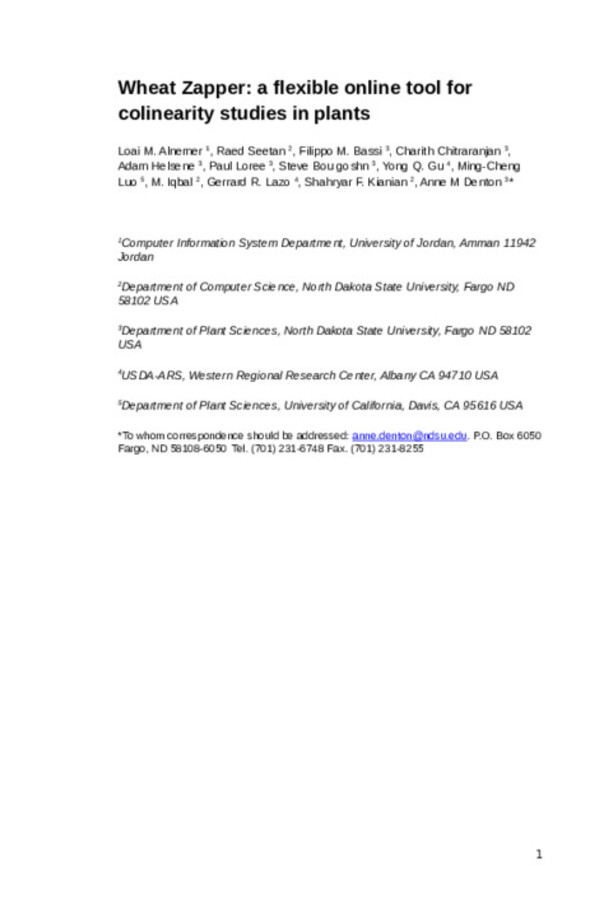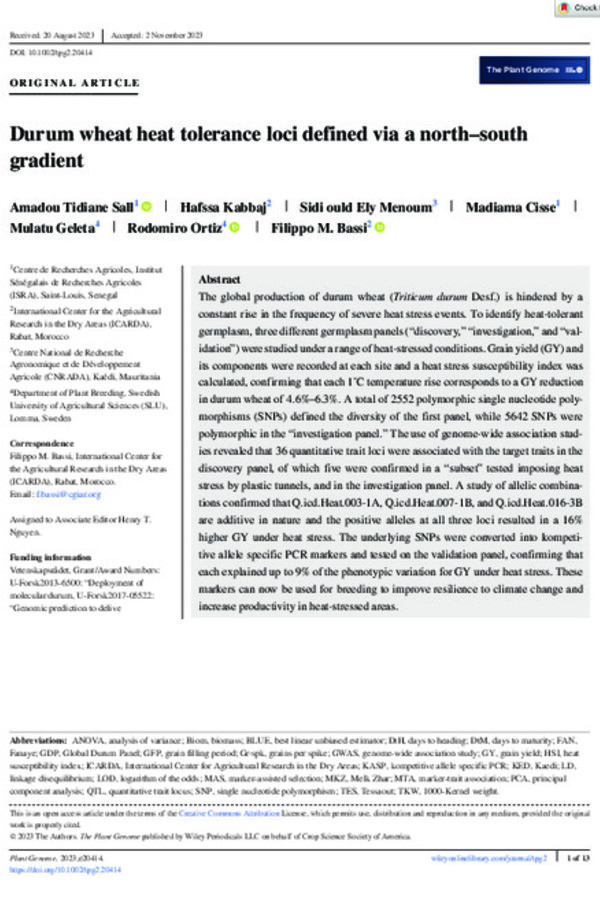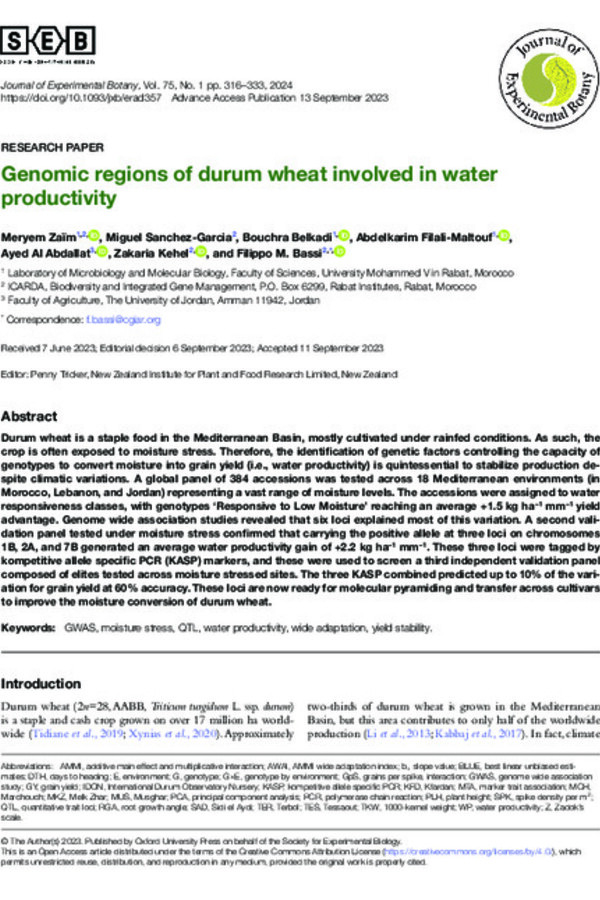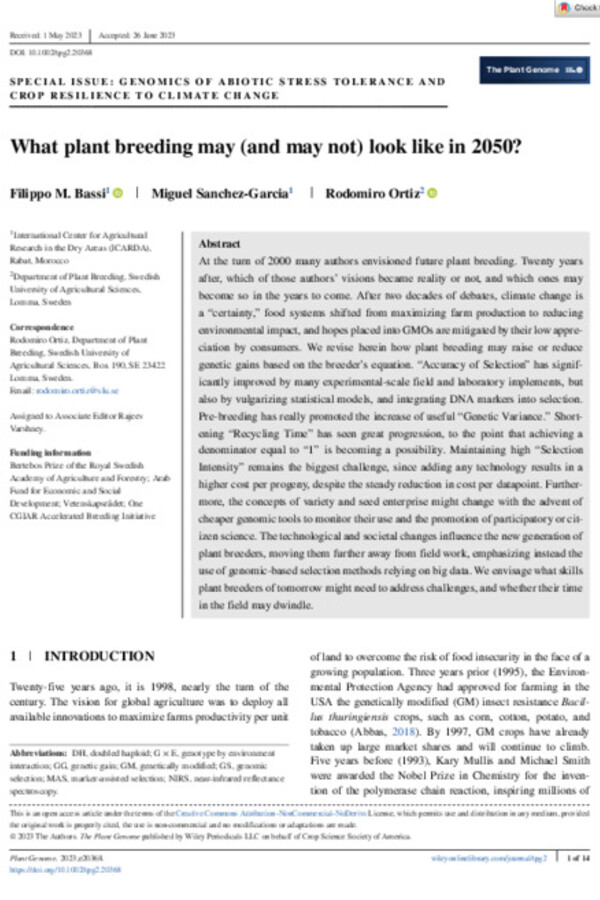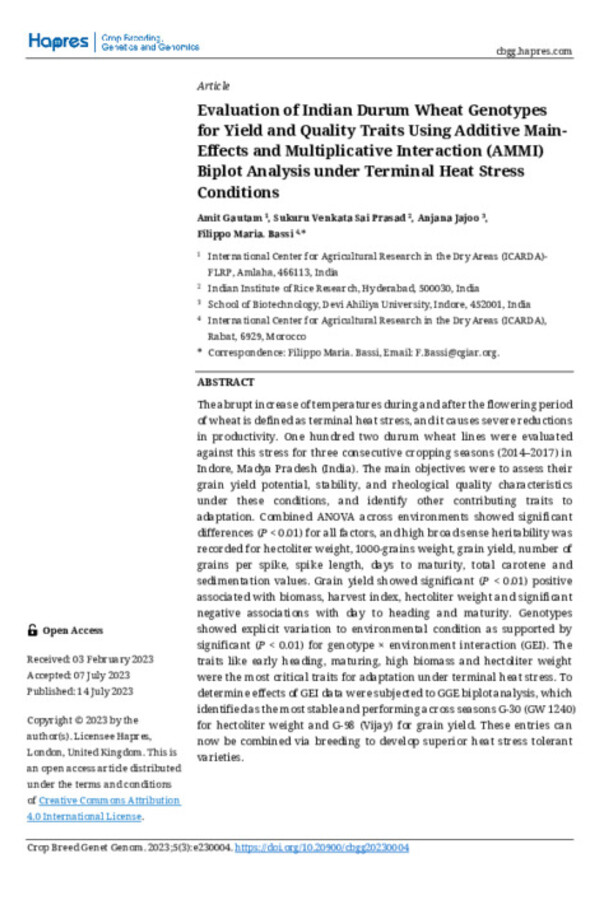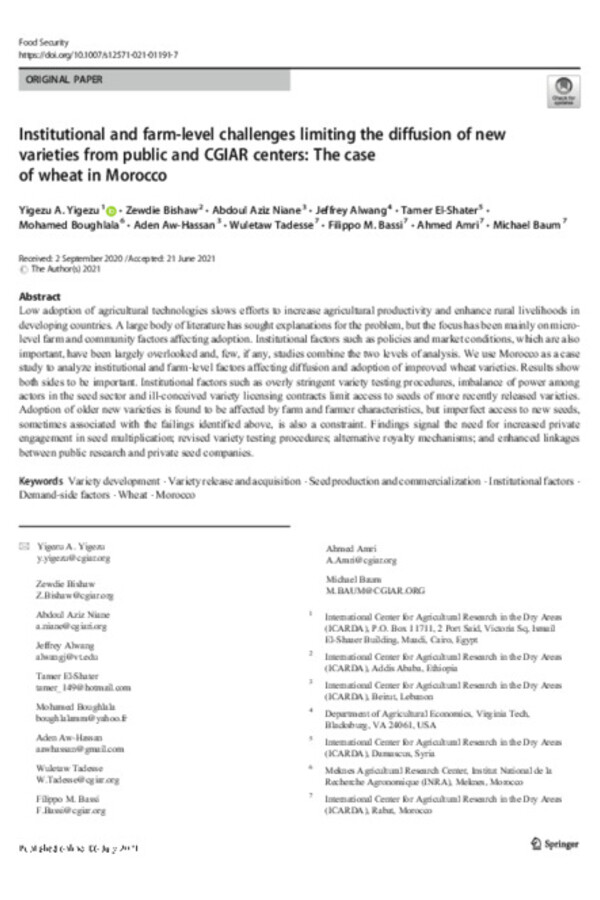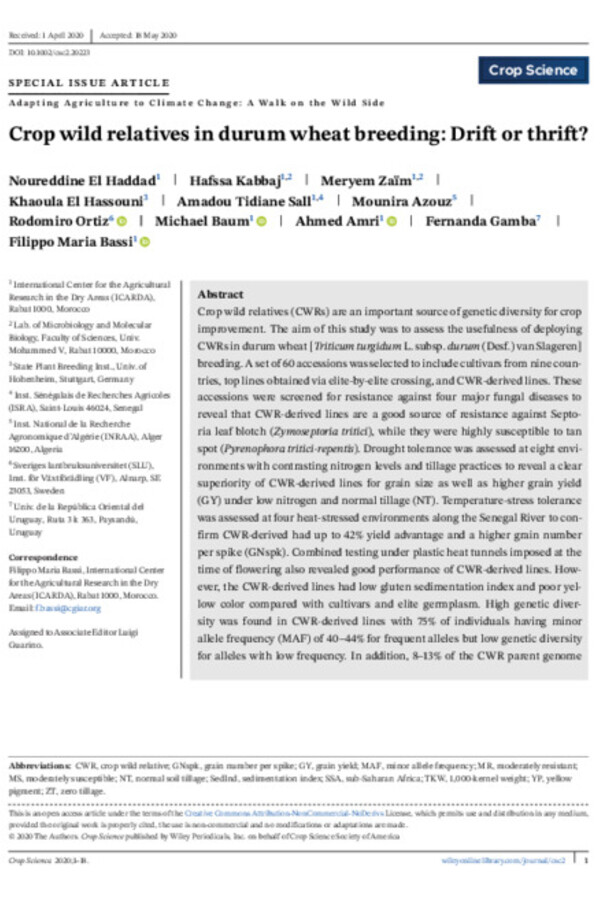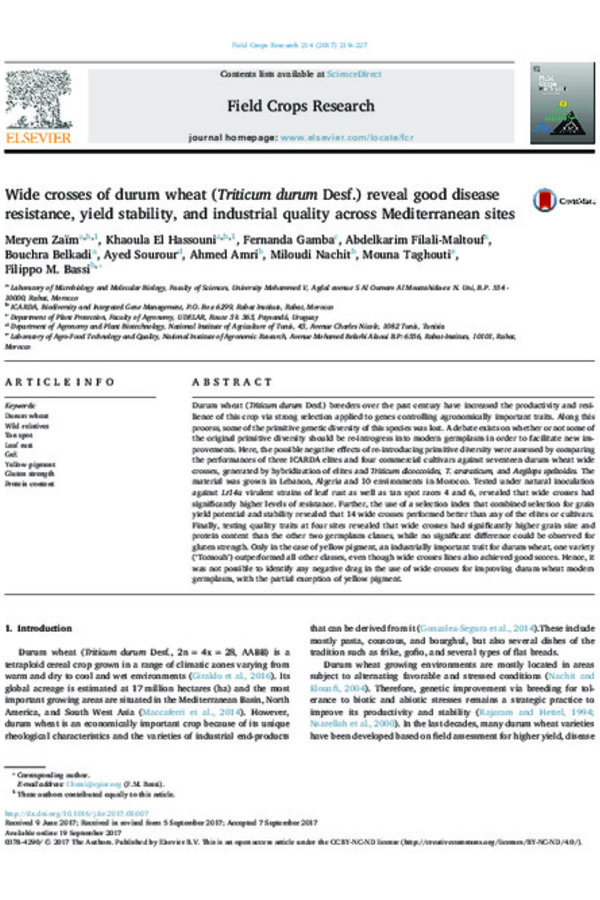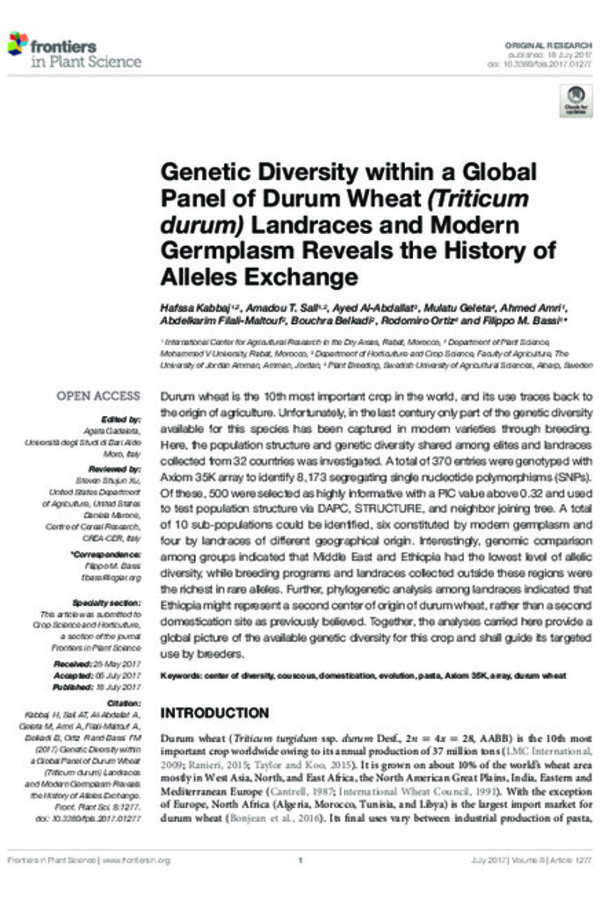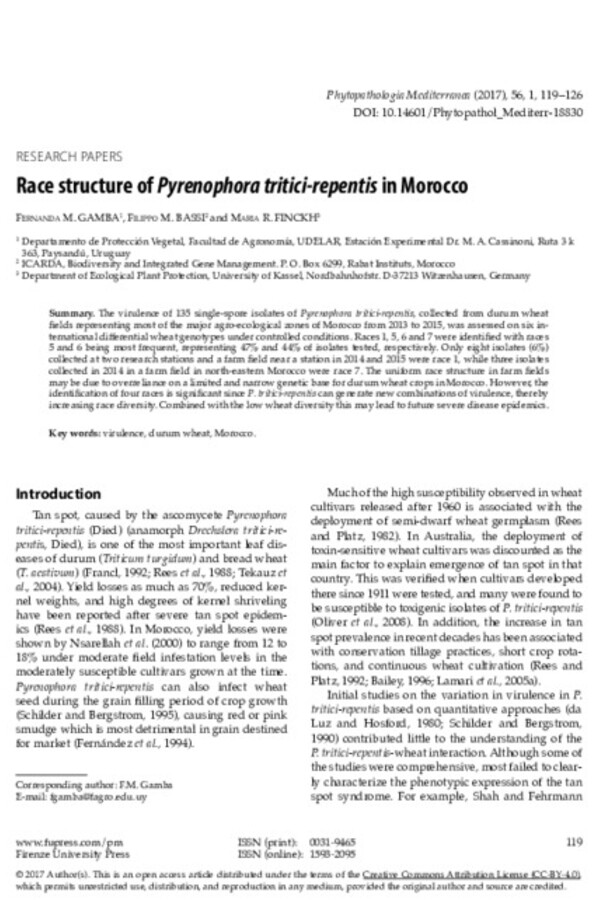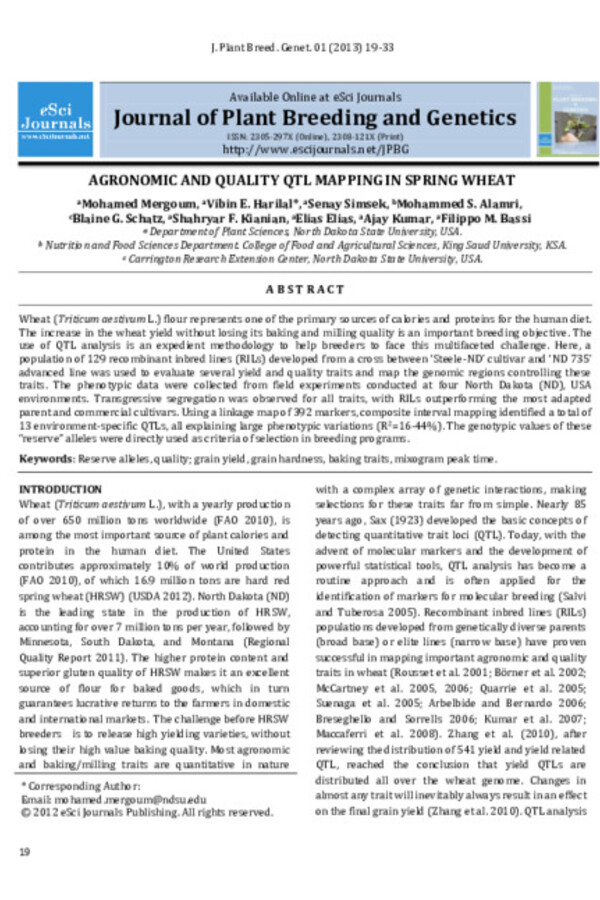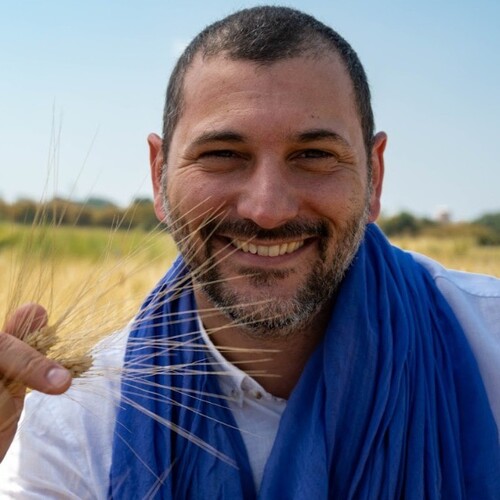
Filippo Bassi is a senior scientist leading ICARDA's Durum Wheat Breeding Program, which aims to deliver superior varieties with increased yields against a backdrop of rapid climate change. He also works in Ethiopia, India, Senegal, Mauritania, Lebanon, Algeria, Tunisia, and several other countries, to improve local scientists’ capacity to innovate.
He was the recipient of the 2017 OLAM Prize for Innovation in Food Security for the release of heat-tolerant durum wheat varieties in the Senegal River Basin, and also won the Beachell-Borlaug Scholarship. He is a member of the Wheat Initiative’s Scientific Steering Committee, which oversees the Expert Working Group in Durum Wheat.
Dr. Bassi holds a Ph.D. in plant breeding and genetics from North Dakota State University in the United States, and a master’s degree in plant biotechnology from the University of Reggio Emilia in Italy and the University of Adelaide in Australia.
Filippo Bassi's Publications
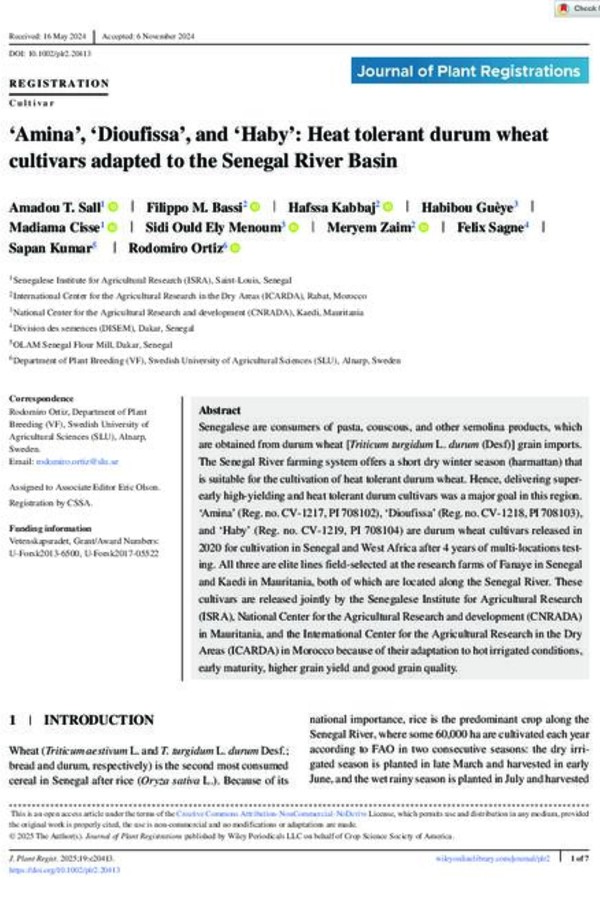
‘Amina’, ‘Dioufissa’, and ‘Haby’: Heat tolerant durum wheatcultivars adapted to the Senegal River Basin
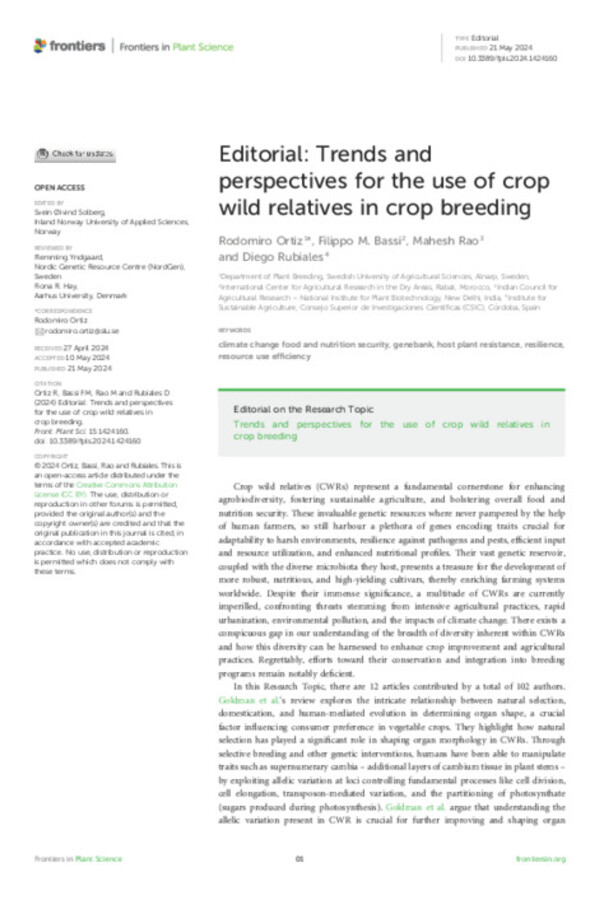
Editorial: Trends and perspectives for the use of crop wild relatives in crop breeding
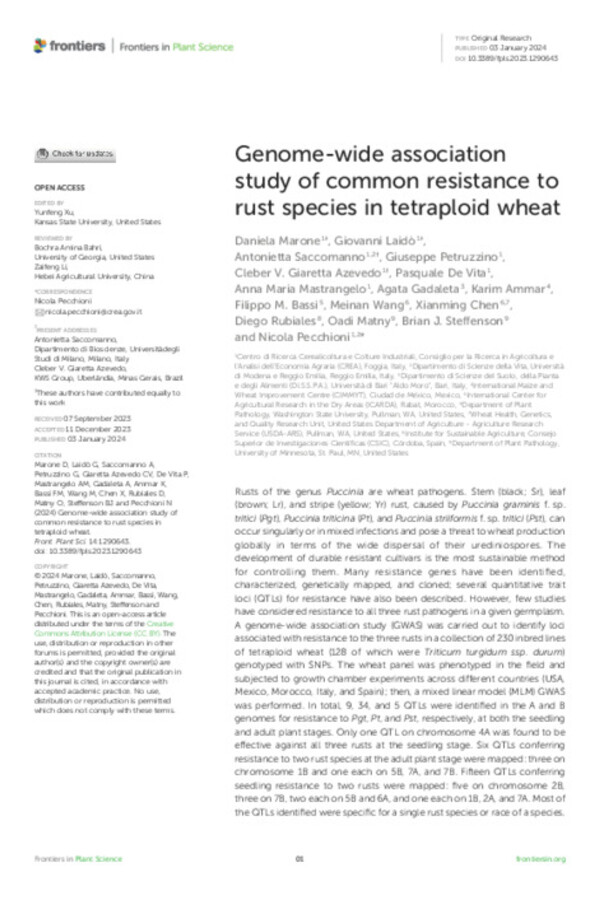
Genome-wide association study of common resistance to rust species in tetraploid wheat
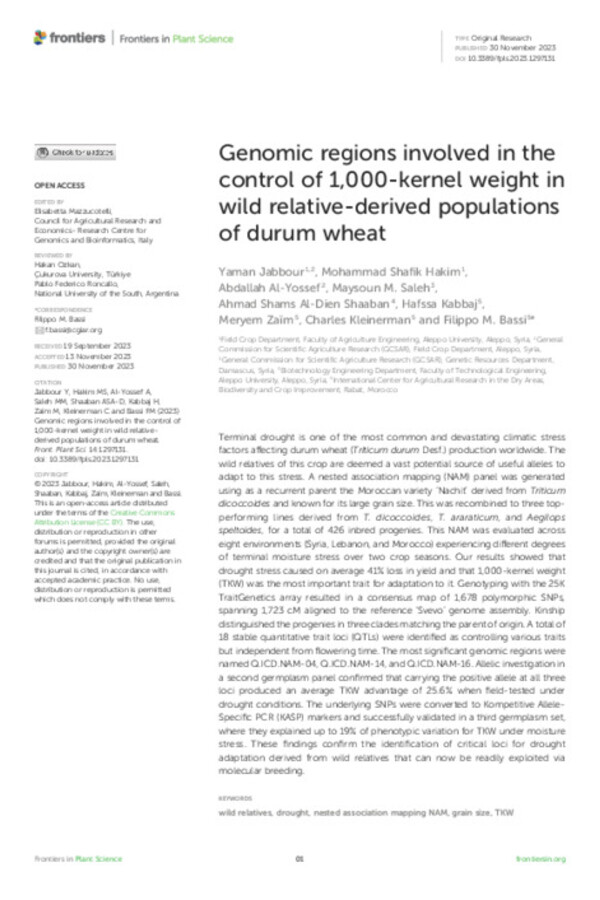
Genomic regions involved in the control of 1,000-kernel weight in wild relative-derived populations of durum wheat
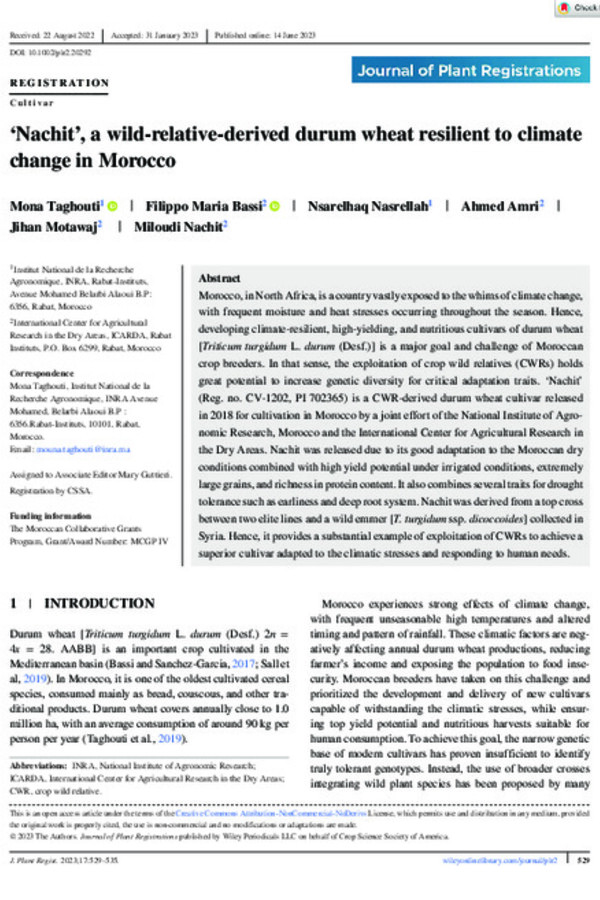
‘Nachit’, a wild-relative-derived durum wheat resilient to climate change in Morocco

Association mapping of resistance to tan spot in the Global Durum Panel

Genomic Approaches to Using Diversity for the Adaptation of Modern Varieties of Wheat and Barley to Climate Change
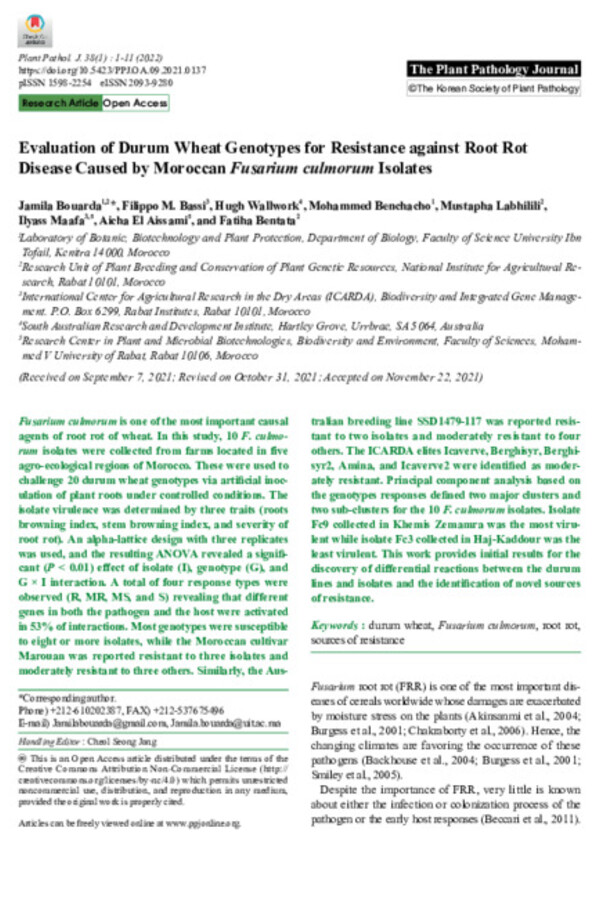
Evaluation of Durum Wheat Genotypes for Resistance against Root Rot Disease Caused by Moroccan Fusarium culmorum Isolates
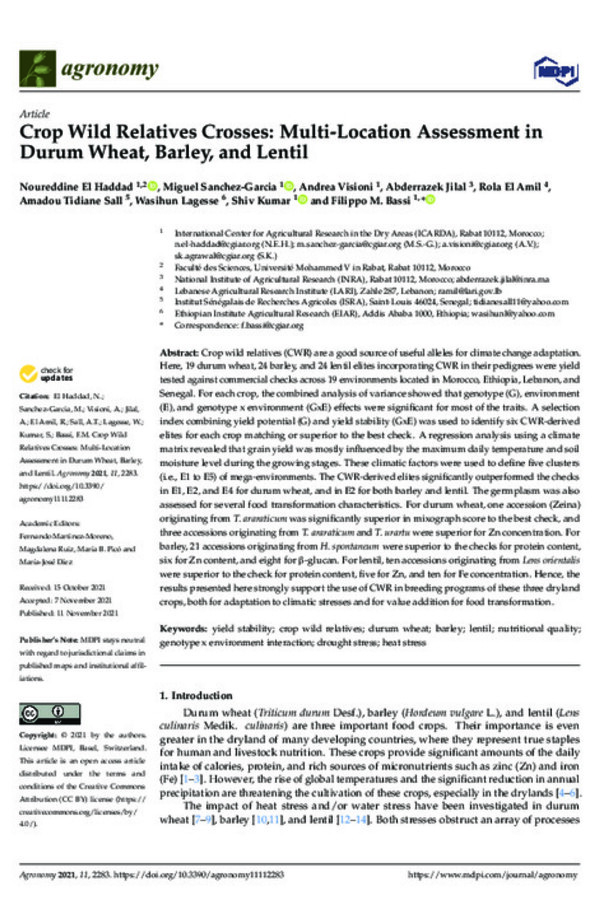
Crop Wild Relatives Crosses: Multi-Location Assessment in Durum Wheat, Barley, and Lentil

Effect of temperature on the expression of resistance to Hessian fly (Diptera: Cecidomyiidae) in durum wheat cultivars
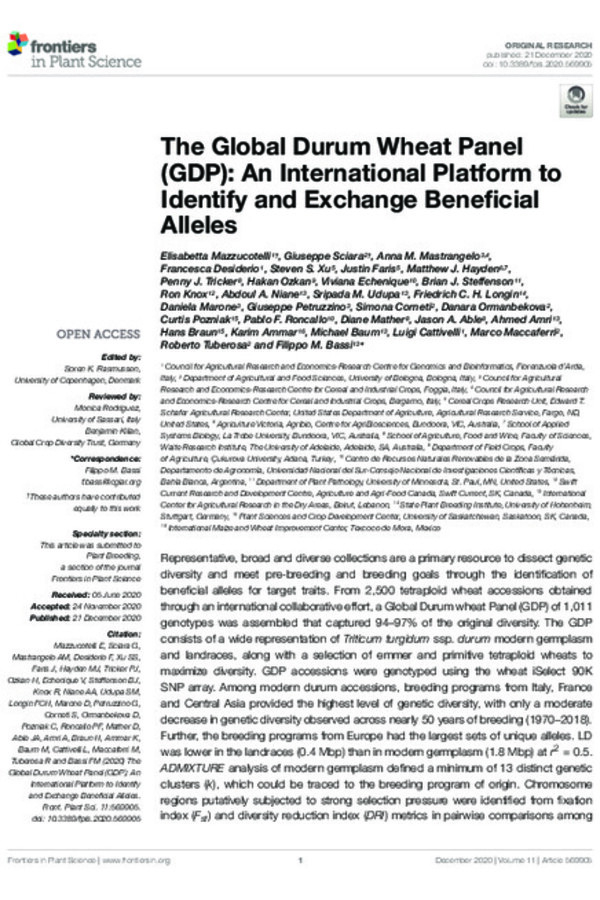
The Global Durum Wheat Panel (GDP): An International Platform to Identify and Exchange Beneficial Alleles
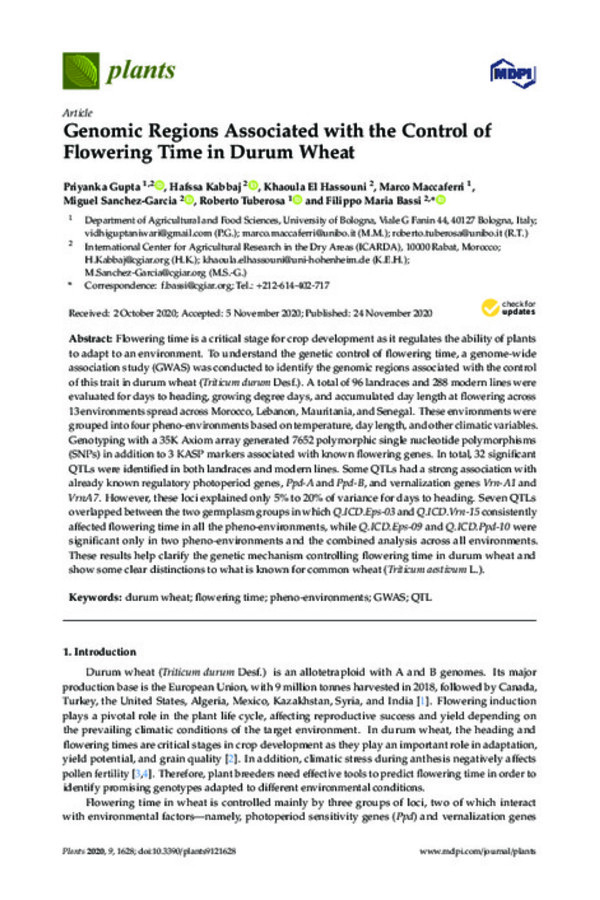
Genomic Regions Associated with the Control of Flowering Time in Durum Wheat
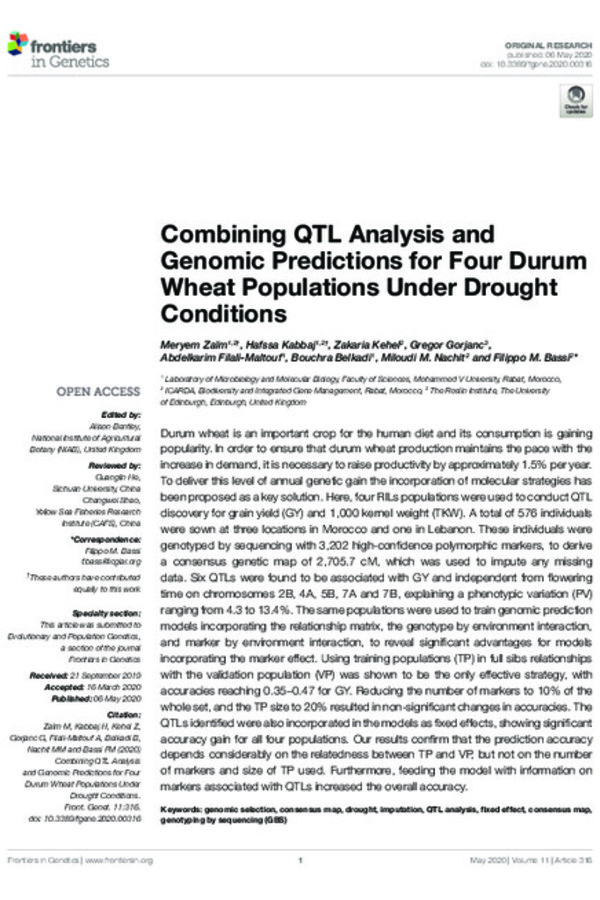
Combining QTL Analysis and Genomic Predictions for Four Durum Wheat Populations Under Drought Conditions
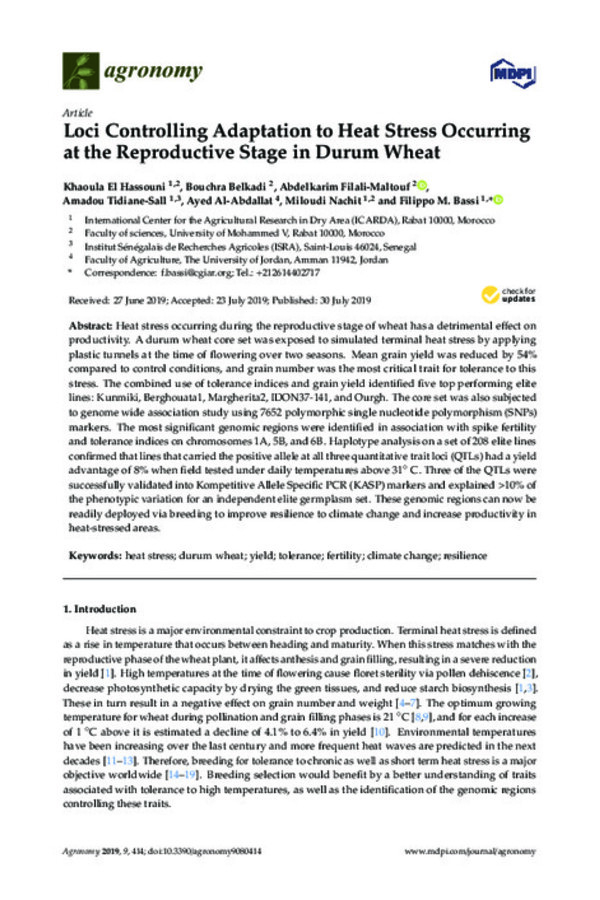
Loci Controlling Adaptation to Heat Stress Occurring at the Reproductive Stage in Durum Wheat
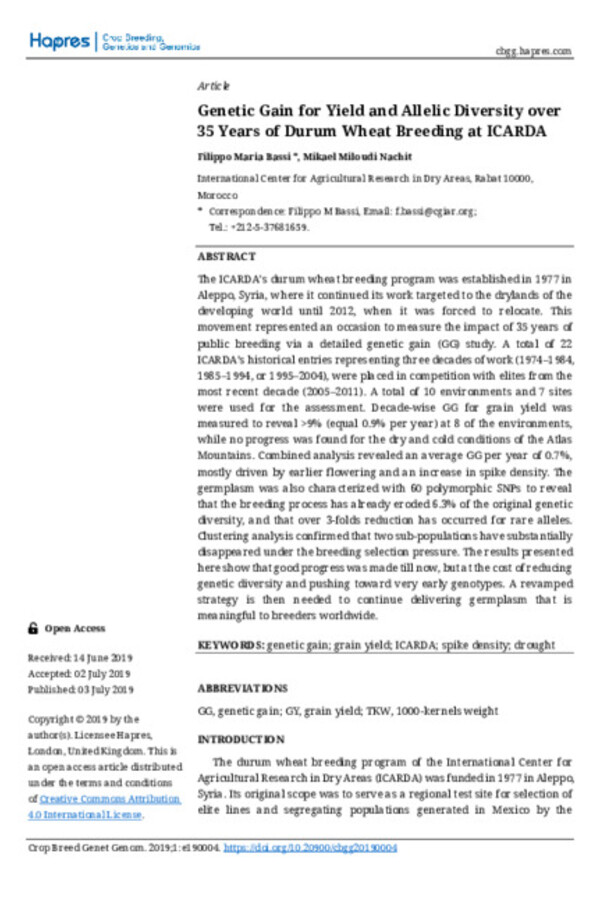
Genetic Gain for Yield and Allelic Diversity over 35 Years of Durum Wheat Breeding at ICARDA
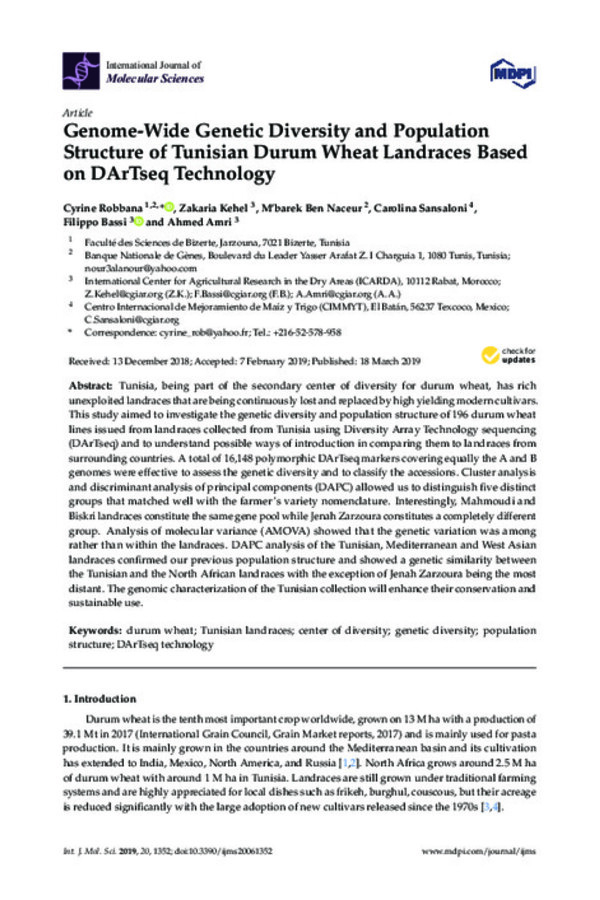
Genome-Wide Genetic Diversity and Population Structure of Tunisian Durum Wheat Landraces Based on DArTseq Technology
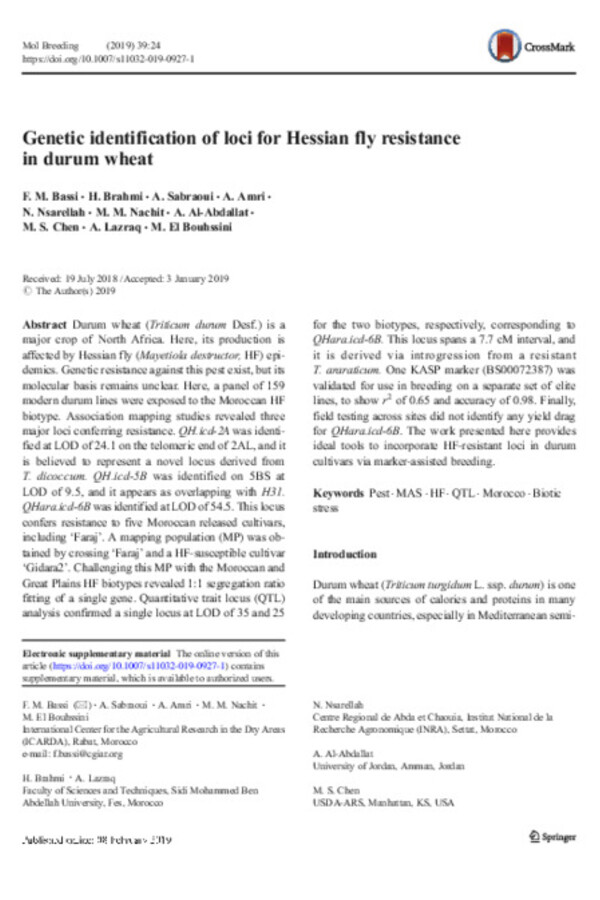
Genetic identification of loci for Hessian fly resistance in durum wheat
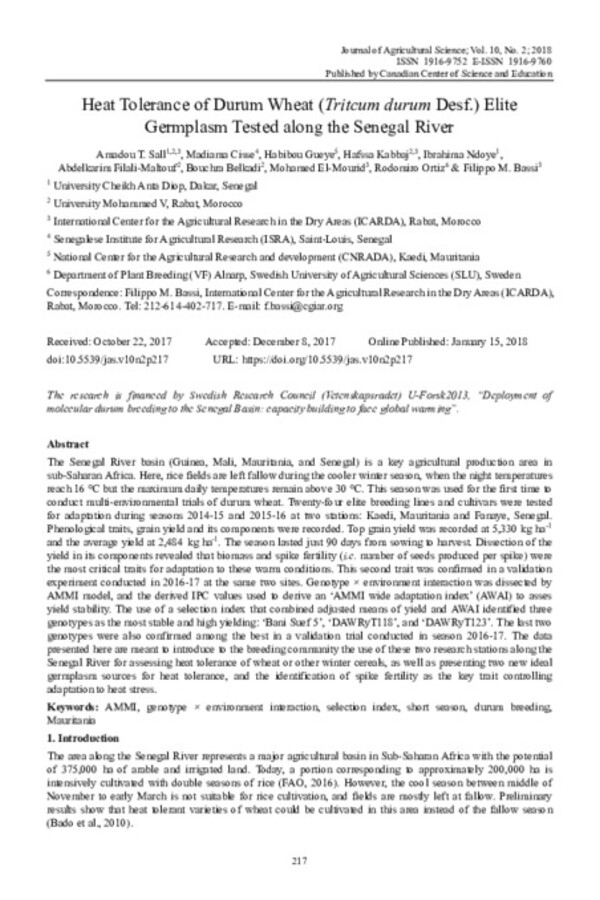
Heat Tolerance of Durum Wheat (Tritcum durum Desf.) Elite Germplasm Tested along the Senegal River
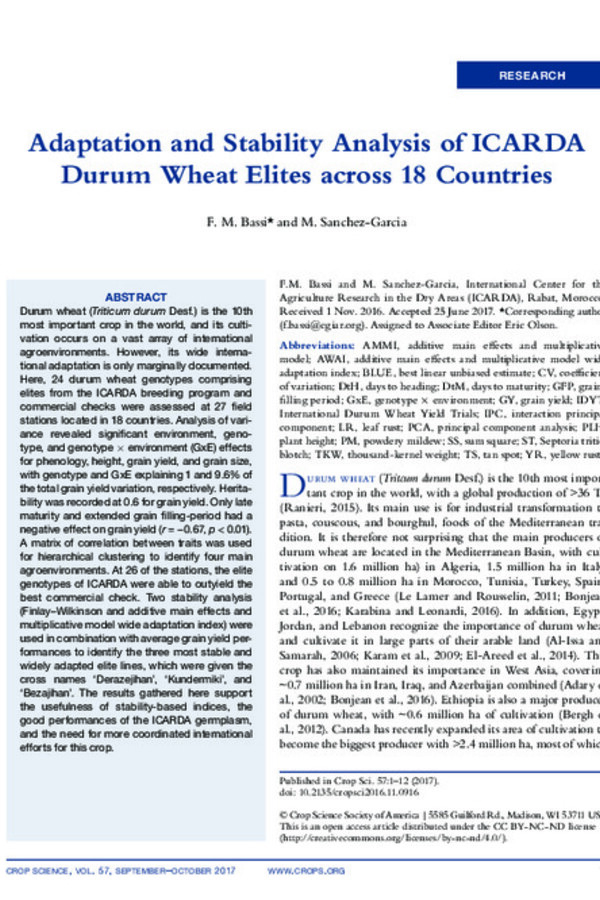
Adaptation and Stability Analysis of ICARDA Durum Wheat Elites across 18 Countries
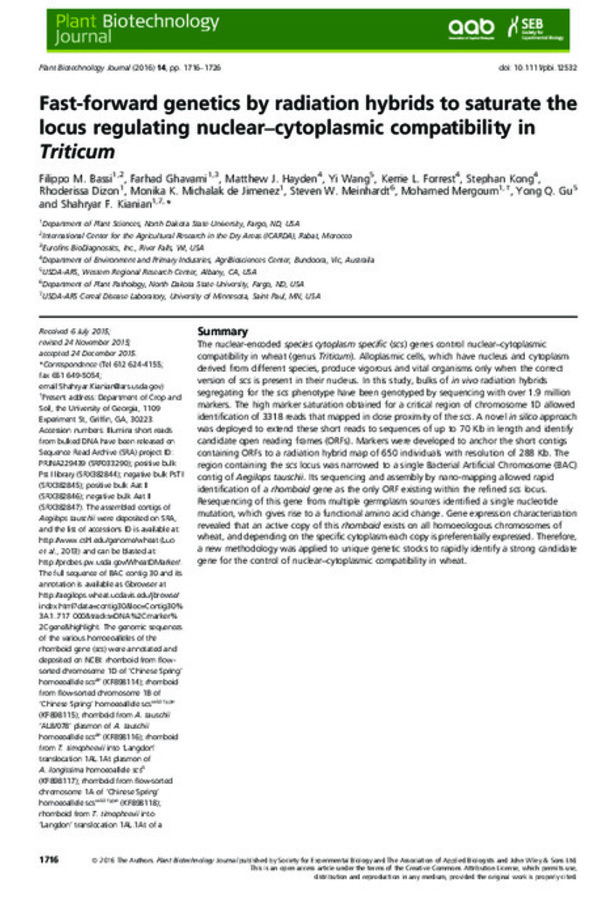
Fast-forward genetics by radiation hybrids to saturate the locus regulating nuclear–cytoplasmic compatibility in Triticum
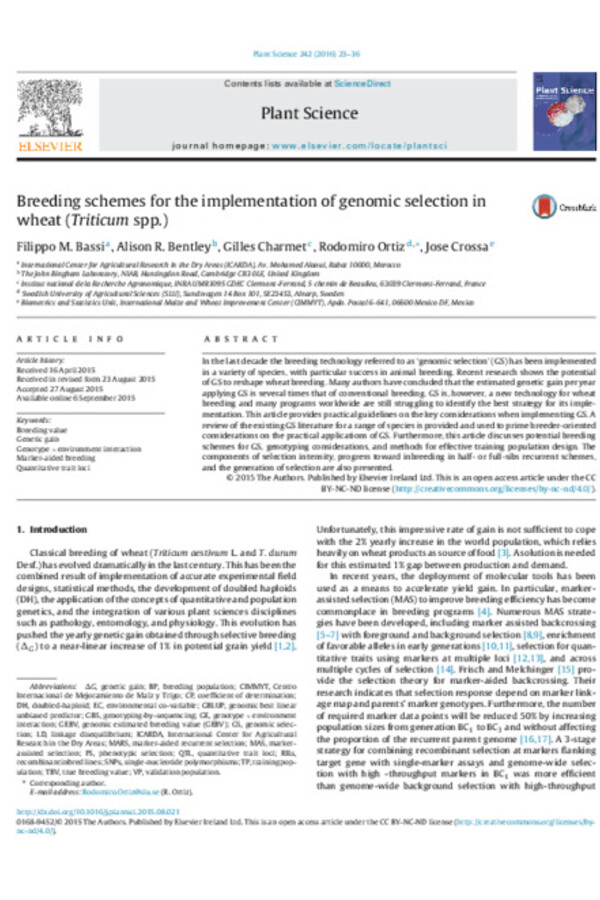
Breeding schemes for the implementation of genomic selection in wheat (Triticum spp.)
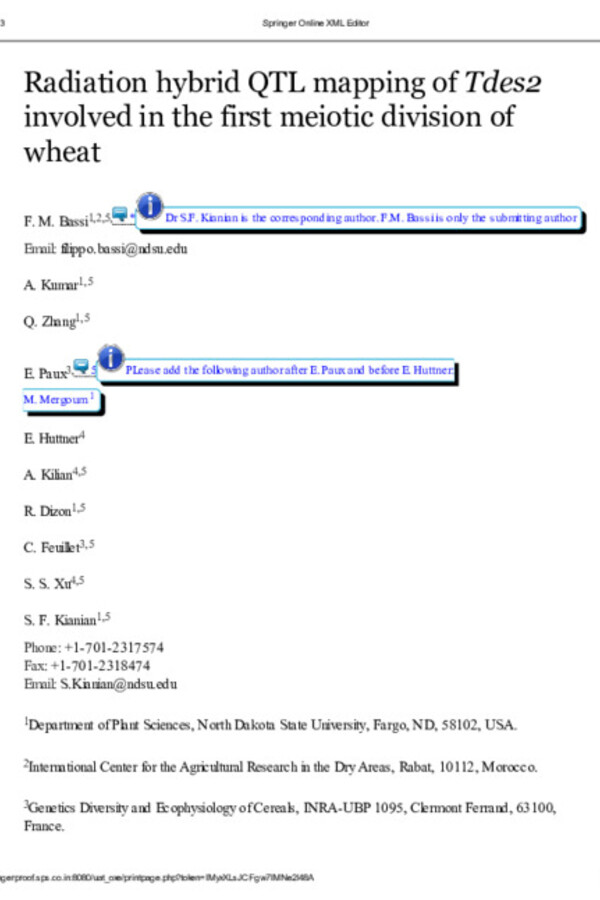
Radiation hybrid QTL mapping of Tdes2 involved in the first meiotic division of wheat
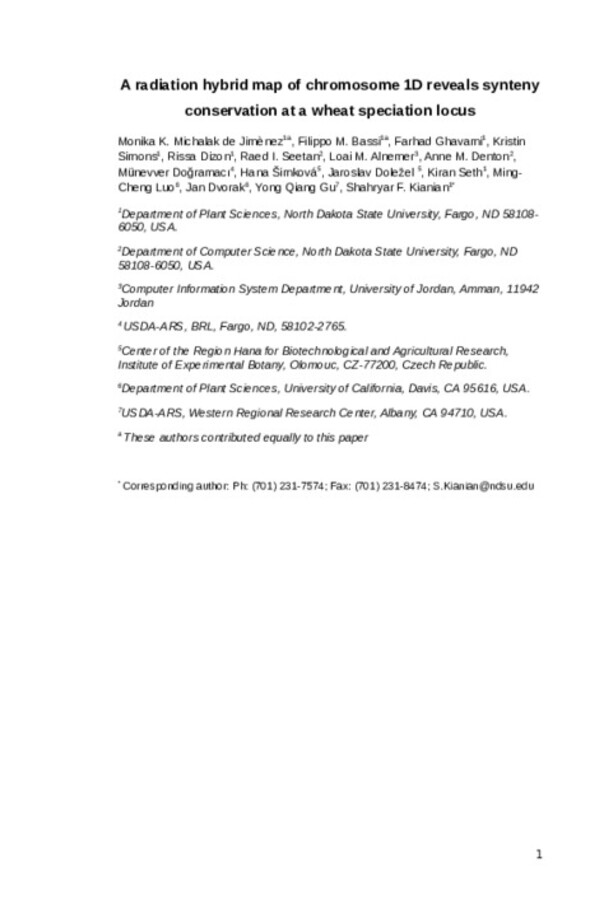
A radiation hybrid map of chromosome 1D reveals synteny conservation at a wheat speciation locus
